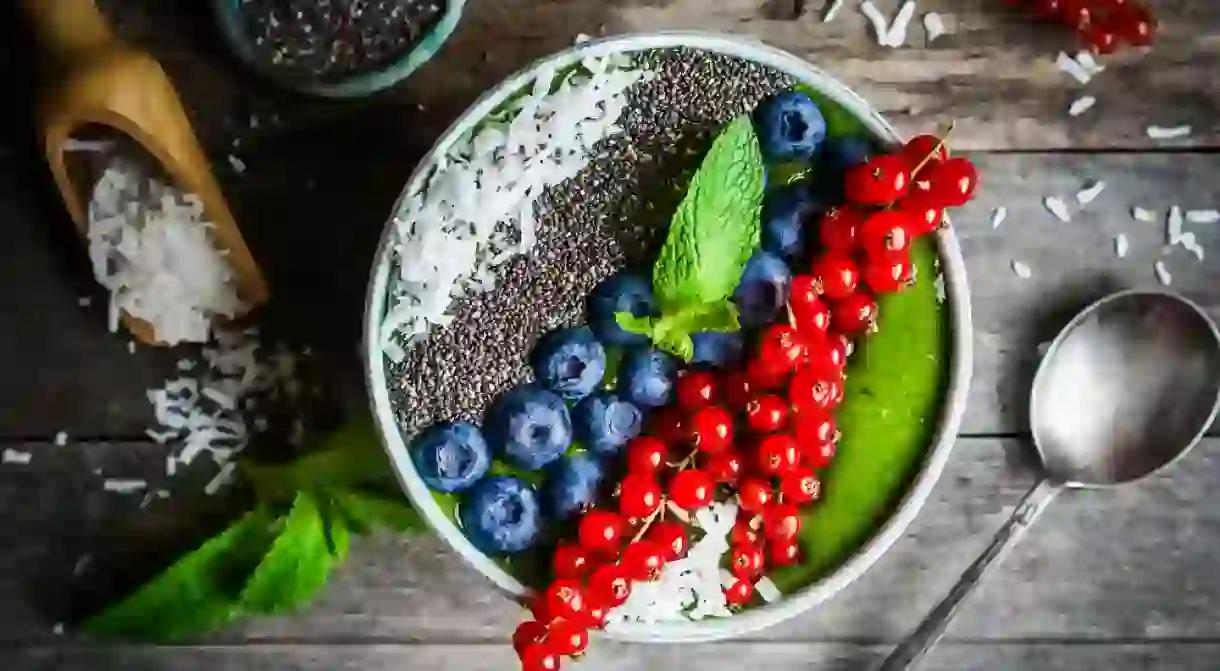How To Detox (The Healthy Way) Before The Holidays

For many Americans, the holidays are an opportunity to be around the people they love as they express gratitude for life’s blessings. For others, it’s an opportunity to indulge in the most delicious, calorie-packed foods and beverages without fear of judgment. But getting your pre-holiday diet in check can make your holiday season cheat meals even more guilt-free.
On average, Americans only gain about one pound during the holiday season — but that doesn’t mean that the foods you consume can’t come back to haunt you later. Most people never lose the pound they gain, and over several years that adds up. Further, your liver, kidneys, and digestive tract can all be put through the wringer with one bad day of overeating. Imagine what happens after a few weeks.
“I think the number of people who only overeat at the Thanksgiving meal is slim to none,” Dr. Holly Hull, a researcher at the University of Oklahoma, told The New York Times. “The holiday season doesn’t represent one day of overeating. You have this period that extends through the new year where there’s more alcohol, more snacks, more finger foods and appetizers that are energy dense.”
Here are some tips to prepare your body for the holidays through your diet, but remember — the healthiest thing you can do is avoid overeating and overindulging, rather than trying a last minute fix.
Make a rule and stick to it
The best way to succeed at any diet or detox is to prepare, prepare, prepare. Amanda Dale, certified personal trainer and creator of lifestyle brand This Fit Blonde, says that creating a food timeline can help you stick to the detox and get the desired result.
“Prior to the holiday season, set a dietary deadline — for example, an intermittent fasting window (eat within an 8-hour period, such as 12pm-8pm, then fast for the remaining 16 hours), no carbs after 4pm, or simply no eating after dinner,” Dale told us. “Having a hard and fast rule will help you stay on track no matter what situations pop up, and it will make you feel more in control of your indulgences as the holiday season wears on.”
Eat slowly: “It’s like yoga for your organs.”
Mindfulness, the practice of being present in the moment, is helpful in all aspects of your life. Mindful eating can help you make healthier food choices and also lower your calorie intake during your detox. Try eating in silence, or sharing a meal with a loved one without any digital devices.
Homeopathic treatment expert Janice Rosenthal, who opened the first vegetarian restaurant in Cape Town, South Africa, says paying attention to how much you chew can also be beneficial. “People who chew each mouthful around 25 times, consume less calories, because the meal takes much longer to complete,” Rosenthal told us. “After 20 minutes, the digestive receptors send hormonal messages to the brain, signaling that it is full […] Chewing your food 20 times, is especially relevant during a detox, when the aim is to give your organs a rest. It’s like yoga for your inner organs.”

Swap out meat for fiber-rich produce
Meat doesn’t have to be your only source of protein and iron. Replacing meat with other healthful sources of these key nutrients can give your body a break before you indulge in Thanksgiving turkey and Christmas ham.
“For one week, give your inner organs a rest, and detox by giving up meat, chicken, fish, eggs, and dairy,” said Rosenthal. “Eat lots of raw and cooked vegetables, and as much fruit and fruit juice as you like. Any whole plant foods are allowed, such as nuts, seeds, legumes and whole grains.”
Heavy on the water, skip the booze
It wouldn’t really be a detox if we didn’t tell you to avoid alcohol. The holiday season is filled with cheer, gatherings…and open bars. When it comes to caloric intake, bloating, and fatigue, alcohol is usually a culprit. In the days and weeks leading up to the holidays, try to give your body a break from the booze and up your water intake.
And when you do resume drinking, Dale offered some advice on doing it in the “healthiest” way possible.
“If you do consume alcohol abide the one-for-one rule: one 8-ounce glass of water for every alcoholic drink, no matter what,” she said. “The biggest culprit in raging hangovers is dehydration, so by keeping your water intake consistent with your rate of imbibing, you’ve got a better chance of feeling okay the next morning and will be less likely to reach for a big, greasy meal to settle your stomach.”














